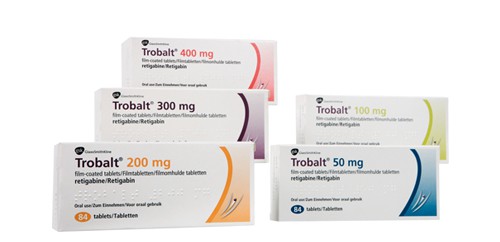
European regulatory advisors have recommended GlaxoSmithKline and Valeant’s epilepsy drug Trobalt be restricted after safety concerns over its use emerged.
The Committee for Medicinal Products for Human Use (CHMP) wants Trobalt (retigabine/ezogabine) to be used only by patients for whom other anti-epileptic medicines have proved inadequate, or have not been tolerated.
This means the drug, which was approved in Europe in 2011 for the treatment of partial-onset seizures (epileptic fits) with or without secondary generalisation, should only be used as a last-line therapy in partial epilepsy.
The CHMP said the move followed cases of abnormal colouring of the skin, nails, lips and eye tissues, including the retina, in some patients who took Trobalt.
Abnormal colouring of the retina can result in impaired vision, and is the primary reason why the restrictions have been put in place.
The CHMP, which is advises the European Medicines Agency on drug decisions, wants to see a comprehensive eye examination performed at the start of treatment and at least every six months during treatment.
This follows similar warning about the drug – which is called Potiga in the US – from the FDA last month.
This will certainly be a knockback for the medicine, which currently competing with newer epilepsy drugs such as Pfizer’s Lyrica and UCB’s Keppra.
Trobalt has been forecast peak annual sales of between $200m and $800m – though it looks more likely now to edge toward the lower end of that scale.
The drug, a first-in-class epilepsy treatment, was originally developed by Valeant Pharmaceuticals and is co-marketed globally with GSK.
Trobalt has a unique mechanism of action (MOA) compared with other anti-epileptics on the market and works by targeting and opening a subset of potassium channels.
It is believed that by facilitating the opening of specific neuronal potassium channels, Trobalt increases the inhibitory effect of the potassium current and reduces the ‘excitability’ of neuronal cells.
This unique MOA helps it compete with older off-patent drugs such as GSK’s own Lamictal, Janssen’s Topamax and Pfizer’s Neurotin.




